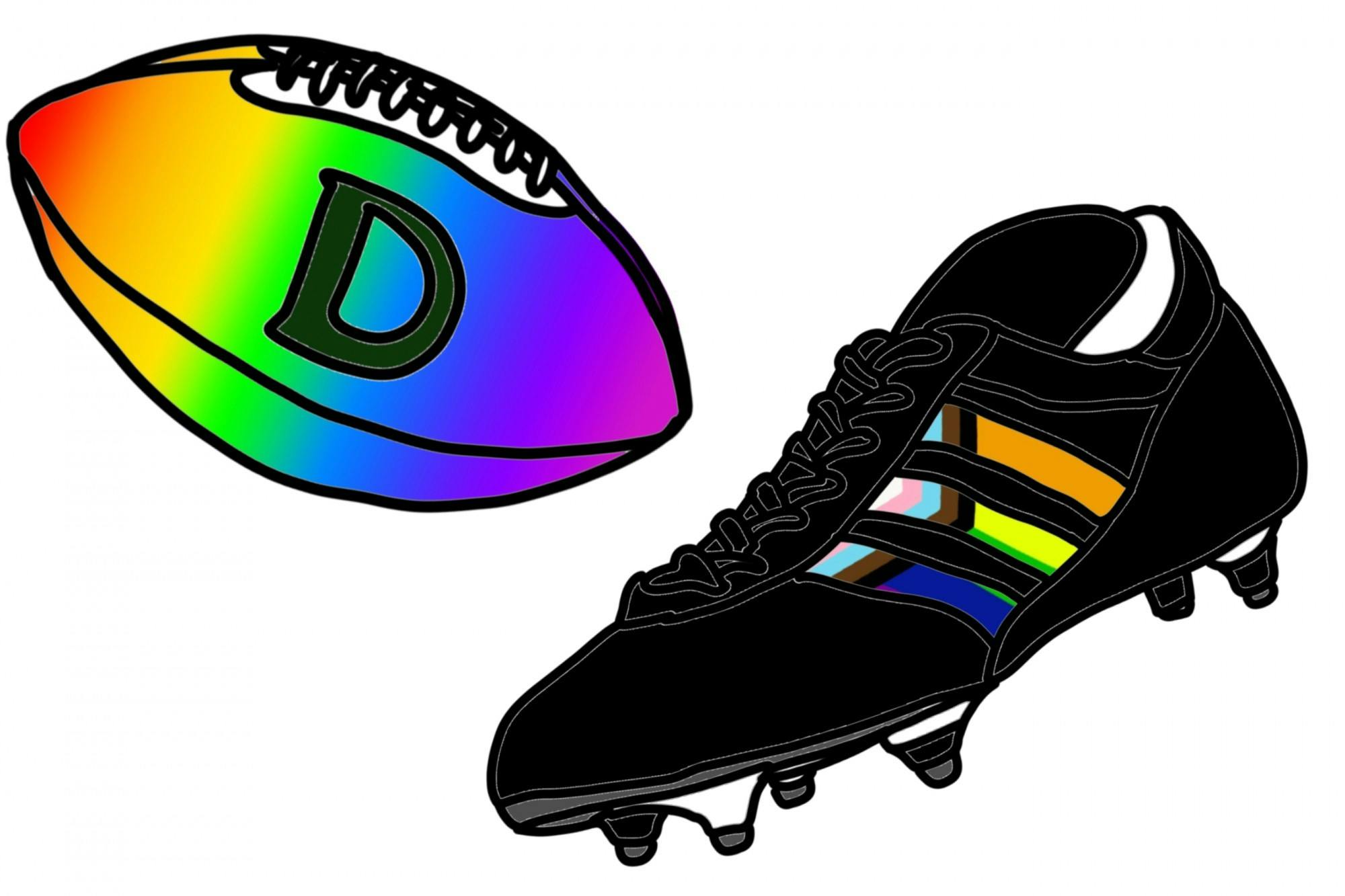On June 25, Athlete Ally, an organization dedicated to ending homophobia and transphobia in sports, updated their rating of the Athletic Department’s inclusion policies, changing Dartmouth’s Athlete Equality Index score to 100 out of 100. In March, Dartmouth received a score of 40 out of 100 from the same organization.
AEI scores are determined after Athlete Ally assesses departments’ nondiscrimination policies, sexual harassment policies, annual partnerships and collaborations with LGBTQ+ groups, pro-LGBTQ+ trainings for staff and athletes, trans-inclusion policies, fan codes of conduct and LGBTQ+ educational resources, according to the group’s website.
Along with Dartmouth, only 15 other institutions have received a perfect 100, including two other schools in the Ivy League: Columbia University and the University of Pennsylvania.
According to Ian Connole, the senior associate athletics director for Peak Performance and the athletics diversity and inclusion designee, most of the policies and practices relevant to the AEI were already in place prior to March, but were hard to find in print.
“Our policies haven't actually changed; they’ve been put on the website to be more transparent,” he said. “Since I've been at Dartmouth, we have really sought to create inclusive policies and support all of our students, regardless of gender identity, LGBTQIA+ [identity], race, ethnicity, national origin, etc. For a long time, I think a lot of the policies you’ve had to dig for.”
All the department’s inclusive policies and relevant resources can now be found on the Dartmouth Sports website on the Diversity and Inclusion page. Listed LGBTQIA+ resources include access to student advising at the Office of Pluralism and Leadership and partnerships with other organizations including those with the Office of Institutional Diversity and Equity as well as the Consortium for the Studies of Race, Migration, and Sexuality at Dartmouth.
Connole described the partnership with RMS, which began at the end of spring term, as a new opportunity in which students can learn about issues that intersect with sport.
“There are so many overlaps in the world of sport — where issues of race, migration and sexuality intersect with sport — that I think it can steer some of our student athletes into fields of study that they may have not realized as an academic passion,” Connole said. “I think it can also help our academic wing of campus to be able to see some of the passions and excitement and activism that occurs within sport at the broad scale.”
Connole added that some of the most important inclusive practices are happening behind the scenes, such as coaches and other staff members receiving guidance on how to promote Dartmouth’s mission of “inclusive excellence.” These include training sessions hosted by the Office of Institutional Diversity and Equity focused on creating inclusive cultures, holding roundtable discussions at coach meetings and introducing speakers focused on inclusivity at staff meetings.
John Speicher ’21, a member of the men’s tennis team who identifies as gay, said he was really glad to hear that coaches were receiving such training.
“Coaches, for the most part, are going to be pretty constant,” he said. “You're going to have new players graduating or coming in, the team is constantly changing and you have the coach there to kind of set the culture of the team — so having that training is really important and making sure they’re on board is really important.”
Some students feel that there still needs to be more communication and transparency between department staff and student athletes about inclusion initiatives. Becca Wade ’22, a lacrosse player who identifies as bisexual, said she wishes that she heard more about the policies from the department itself.
“I think they have good intentions, but nothing has been communicated — unless it’s to the coaches and then the coaches are not filtering it down,” she said. “We're not getting any department-wide emails as athletes that are like ‘we have this in place now that we didn't have before’ or ‘these are changes that have happened.’”
From her own experiences, she said she also feels like many of the policies show up more in writing than in practice. One such practice includes pro-LGBTQ+ trainings for students, an area where Dartmouth earned a perfect five out of five according to Athlete Ally’s AEI. Wade said that every year she and her teammates partake in mandatory Dartmouth Bystander Initiative training, but no training related to LGBTQ+ inclusivity.
“I think even just having these trainings for teams and having spaces where LGBT athletes are able to bring awareness to their own experiences, I think that would be helpful with opening up the community for more understanding and more empathy between athletes,” she said.
Another student-athlete, who identifies as queer and requested anonymity because she is not completely out, said she feels that some identity-based mental health resources are still lacking. She said that she believes that there is a relative lack of diversity within the athletic department staff, highlighting the fact that the only sport psychologist at the College is a white man.
“It's very apparent that we need more mental health resources, but I think queer mental health resources would be really important specifically,” she said.
Speicher added that policies of inclusion may not necessarily impact locker room discussions, which often more accurately reflect culture and what athletes experience.
“I think especially in men's sports, there's still a lot of jokes and stuff in the locker room,” Speicher said. “I think having sit downs with those players would be really beneficial … just because the policy is one thing, but the culture in the locker room is really what’s going to be the player’s experience.”





